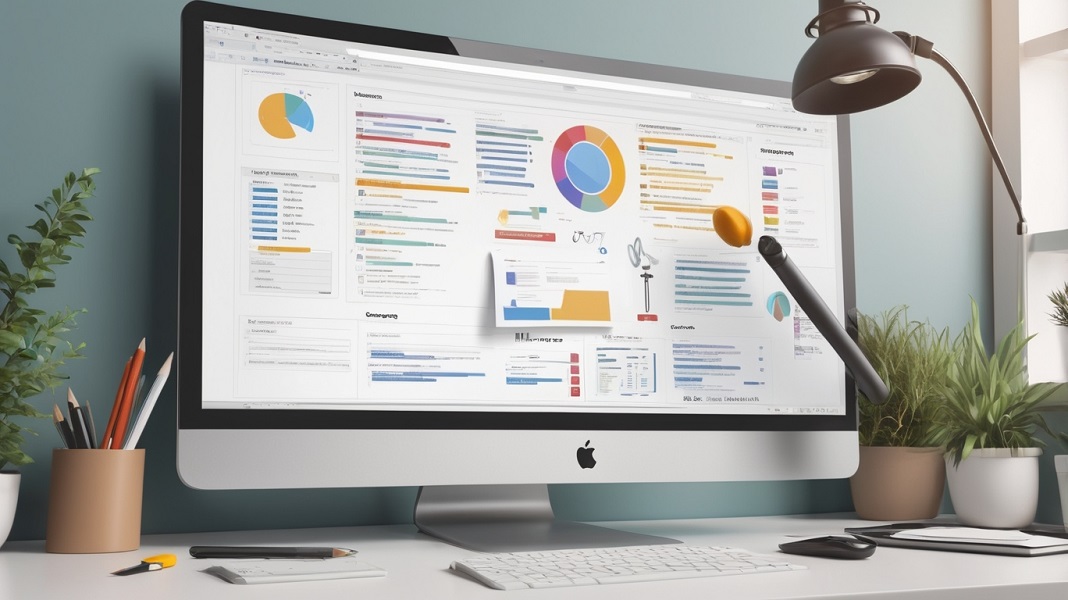Harnessing the Power of External Linking in SEO

When it comes to optimizing your website for search engines, external linking plays a crucial role in boosting your search engine rankings. External links, also known as outbound links, are links that point from your website to other relevant and authoritative websites. These links not only provide valuable information to your visitors but also indicate to search engines that your website is trustworthy and credible. In this article, we will explore the importance of external linking in SEO and how to effectively harness its power to improve your website’s visibility and organic traffic.
The Importance of External Linking in SEO
External linking is a crucial aspect of search engine optimization (SEO). It refers to the practice of including hyperlinks on your website that point to other websites. These external links act as signals to search engines, indicating the relevance and credibility of your content.
There are several reasons why external linking is important for SEO:
- Improves Search Engine Visibility: When you include external links to reputable and authoritative websites, search engines view your content as more trustworthy. This can result in higher search engine rankings, leading to increased visibility for your website.
- Enhances User Experience: External links can provide additional information and resources to your website visitors. By linking to relevant and valuable content, you can improve the user experience and keep visitors engaged for longer periods. This can have a positive impact on your website’s bounce rate and overall user satisfaction.
- Builds Relationships and Networking: External linking allows you to establish connections and build relationships with other website owners and influencers in your industry. By linking to their content, you can grab their attention and potentially gain backlinks and referrals in return. This networking aspect of external linking can greatly benefit your SEO efforts.
- Increase Domain Authority: Search engines take into account the quality and quantity of external links pointing to your website when determining its authority. By including relevant and high-quality external links, you can increase your website’s domain authority, which can positively impact your search engine rankings.
- Expands Your Content’s Relevance: External links can help expand the relevance of your content by associating it with other reputable sources. This can improve the overall quality and credibility of your content, making it more valuable to both search engines and users.
Strategies for Effective External Link Building
External link building plays a crucial role in improving your website’s search engine optimization (SEO) and increasing its visibility on the internet. Here are some effective strategies to consider:
1. Guest Blogging
Guest blogging involves writing and publishing articles on external websites that are relevant to your industry or niche. By including links back to your website within these guest posts, you can build quality external links that drive traffic and improve your SEO.
2. Influencer Outreach
Identify influential individuals or brands in your industry and reach out to them for collaboration opportunities. By establishing relationships with influencers, you can secure external links from their websites or social media profiles, which can significantly boost your website’s credibility and visibility.
3. Content Promotion
Create high-quality content that adds value to your target audience. Once your content is published on your website, actively promote it through social media, email marketing, and other channels. When your content gains attention and gets shared by others, it increases the likelihood of earning external links naturally.
4. Broken Link Building
Identify websites in your industry that contain broken links, which are links that no longer work. Reach out to the website owners or webmasters and inform them about the broken links. Offer your own relevant content as a replacement and suggest they link to your website instead. This strategy helps you build new external links while assisting other website owners in fixing their broken links.
5. Social Bookmarking
Submit your website or specific pages to popular social bookmarking platforms like Reddit, StumbleUpon, or Digg. These platforms allow users to save and share interesting web content. When your website or content gets bookmarked and shared, it can generate valuable external links and improve your SEO.
Remember, when implementing any external link building strategy, always prioritize quality over quantity. Focus on obtaining links from reputable and relevant websites, as search engines value these links more. By consistently applying these strategies, you can harness the power of external linking and enhance your website’s SEO performance.
Benefits of External Linking for Search Engine Rankings
External linking is an essential aspect of search engine optimization (SEO) that can greatly benefit your website’s search engine rankings. When you strategically use external links on your webpages, it can have several positive effects on how search engines perceive and rank your site.
1. Increased Authority and Trustworthiness
By including relevant external links from reputable sources, you can enhance the authority and trustworthiness of your website. Search engines consider external links as votes of confidence from other credible websites. When your site is linked to by other trustworthy sources, it signals to search engines that your content is valuable and reliable.
2. Improved Crawling and Indexing
External links can help search engine crawlers discover and index your webpages more effectively. When search engine bots encounter external links pointing to your website, they follow those links and arrive at your pages. This improves the visibility and accessibility of your content to search engines, increasing the chances of higher rankings.
3. Enhanced Relevance and Context
When you strategically link to external sources that provide additional relevant information, it enhances the overall relevance and context of your content. Search engines analyze the context and relevance of your webpages by considering the quality and topic of the external links. By including well-chosen external links, you can provide users and search engines with a comprehensive and valuable experience.
4. Increased Traffic and Exposure
External linking can also drive more traffic to your website. When other websites link to your content, it exposes your site to their audience and potentially brings in new visitors. Additionally, if your website is linked to from popular and authoritative sources, it can significantly boost your visibility and brand exposure.
Overall, incorporating external links into your SEO strategy can have numerous benefits for your search engine rankings. It helps establish your website’s authority, improves crawling and indexing, enhances relevance and context, and drives more traffic to your site. By harnessing the power of external linking, you can improve your website’s visibility and attract more organic traffic from search engines.

How to Identify High-Quality External Links
When it comes to external links, quality matters more than quantity. Not all external links are created equal, and it’s crucial to identify high-quality ones for effective SEO. Here are some tips to help you evaluate the quality of external links:
1. Relevance
Ensure that the external link is relevant to your website’s content and topic. Links from websites that are in the same industry or have related content are considered more valuable.
2. Authority and Trustworthiness
Look for external links from authoritative and trustworthy websites. Websites with a strong online presence and positive reputation indicate credibility. Consider links from well-known industry leaders, reputable news sources, or educational institutions.
3. Domain Metrics
Examine the domain metrics of the website providing the external link. Metrics such as domain authority, page authority, and trust flow can help determine the quality of the link. Tools like Moz’s Open Site Explorer or Ahrefs can provide valuable insights.
4. Link Context
Consider the context in which the external link is placed. Links within relevant and informative content hold more weight than links in footers, sidebars, or advertisements. Quality external links should naturally integrate into the content and provide additional value to the readers.
5. Editorial Control
Check if the website offering the external link exercises editorial control over their content. Links embedded within guest posts or editorial articles are generally more valuable than links included in user-generated content or comment sections.
By following these guidelines, you can identify high-quality external links that will enhance your website’s SEO efforts and improve its overall visibility in search engine results.
Best Practices for Implementing External Linking in SEO
Implementing external linking in SEO can greatly enhance your website’s visibility and improve its search engine rankings. However, it is crucial to follow best practices to ensure the effectiveness and integrity of your linking strategy. Here are some key guidelines to consider:
1. Relevance is Key
When choosing external websites to link to, prioritize relevance. Ensure that the linked page provides valuable and related information to your users. Linking to irrelevant or low-quality websites can harm your own SEO efforts.
2. Authority and Trustworthiness
Linking to authoritative and trustworthy websites not only enhances the credibility of your own content but also signals to search engines that you are providing reliable information. Seek out reputable sources and avoid linking to spammy or suspicious websites.
3. Anchor Text Optimization
Utilize descriptive and keyword-rich anchor text when linking to external pages. This helps search engines understand the context of the linked content and improves the relevancy of your own website.
4. Avoid Over-Optimization
While external linking is important for SEO, it is essential to maintain a natural and balanced linking profile. Avoid excessive keyword stuffing or over-optimization of anchor texts, as this can be seen as manipulative by search engines and result in penalties.
5. Monitor and Update Links
Regularly review and update your external links to ensure they are still active and relevant. Broken or outdated links not only provide a poor user experience but can also negatively impact your SEO rankings. Consider using tools or plugins that can automate this process.
6. Foster Relationships
Building relationships with other website owners or influencers in your industry can lead to valuable external linking opportunities. Collaborate on guest blogging, interviews, or content partnerships to naturally acquire high-quality backlinks that boost your SEO efforts.
By adhering to these best practices, you can harness the power of external linking in SEO and drive organic traffic to your website while establishing your brand’s authority in the digital landscape.
Conclusion
Overall, external linking is a crucial aspect of SEO that should not be overlooked. By strategically incorporating high-quality external links into your website, you can enhance its credibility, visibility, and authority in the eyes of both search engines and users. Remember to focus on relevance, authority, and user experience when selecting external links, as this will positively impact your website’s SEO performance. Additionally, regularly monitoring and updating your external links will ensure that they remain valuable and beneficial to your website’s overall SEO strategy. By harnessing the power of external linking, you can significantly improve your website’s search engine rankings and attract more organic traffic.





